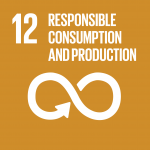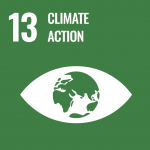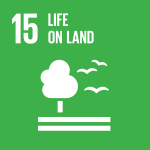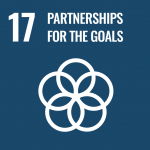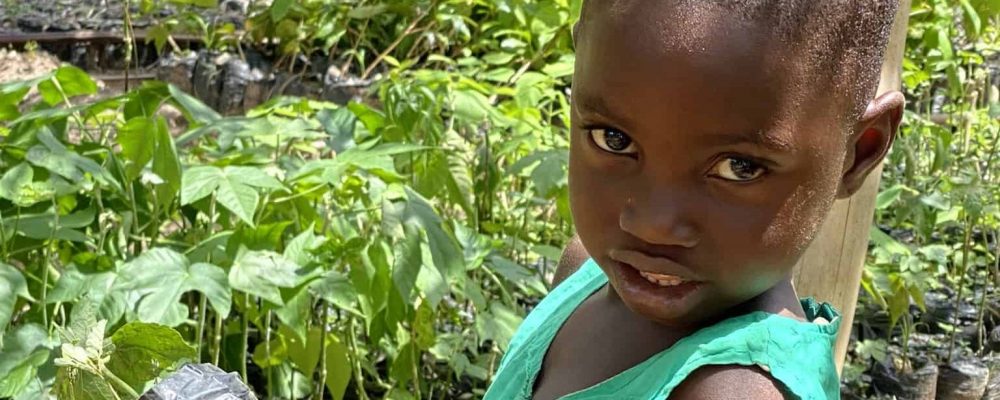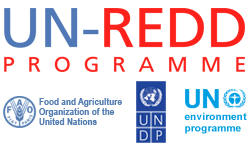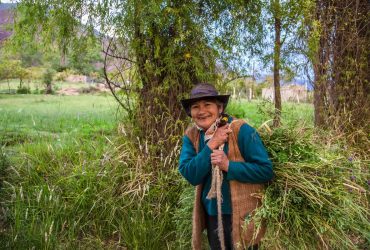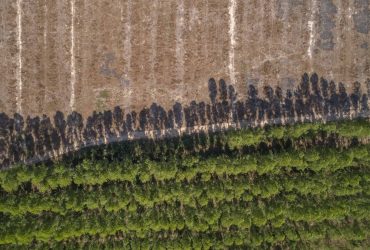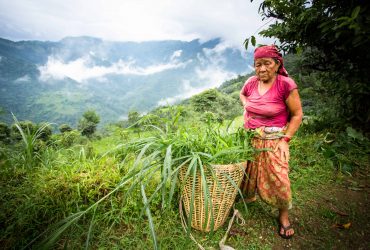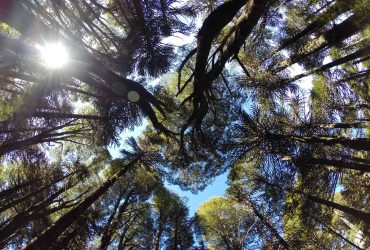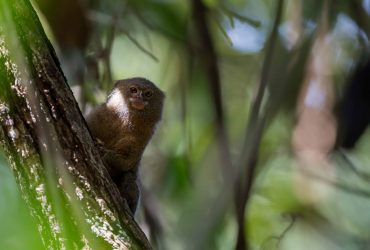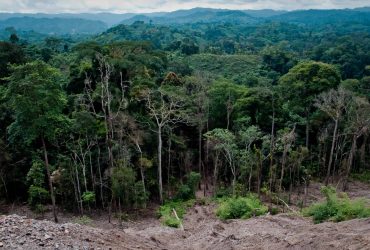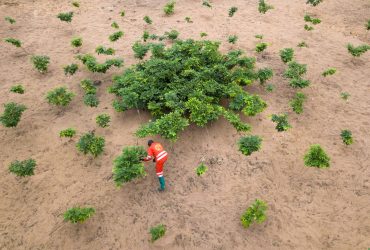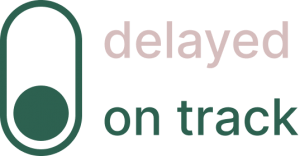


To increase its forest cover to at least 20 percent of the national territory by 2030, Côte d’Ivoire continues to implement an ambitious national policy on forest and natural resource management. Côte d’Ivoire is the beneficiary of several recent investments in climate finance and REDD+, including two Forest Investment Programs (FIP 1 & 2), the Emissions Reduction Program (ERP) in the western part of the country, and a project financed by the GCF: Promoting Deforestation-Free Cocoa Production to Reduce Emissions in Côte d’Ivoire (PROMIRE). Moreover, Côte d’Ivoire is engaged in dialogue with the main agricultural sectors responsible for deforestation: cocoa, rubber, oil palm, rice and yams, as a means to mobilize the private sector.
Forest Solutions Realized: UN-REDD deployed an important private sector engagement strategy focused on the cocoa value chain, in close collaboration with the European Forest Institute (EFI), involving several ministries (environment, agriculture and finance), under the leadership of the Cocoa Coffee Council (CCC). That led to the creation of the 1for20 Partnership, which aims to mobilize $1 billion for the restoration of 20 percent of the country’s forest cover. To that end, the partnership convenes private and public sector actors to explore innovative financing models capable of financing the transition to sustainable and deforestation-free cocoa production at scale. In 2022, a study was carried out in the Loh-Djiboua region to assess the feasibility of REDD+ implementation at the jurisdictional level and to complement the existing approach. Different enabling conditions and progress made in the region were identified in terms of REDD+. Suggestions were included concerning the design and implementation of a pilot project to test an approach and replicate it at the regional and jurisdictional level.
A technical and remote training on Collect Earth Online (CEO), involving 10 participants (three women) from various institutions, including representatives from the SEP-REDD, was organized to strengthen technical capacities for the collection of activity data at the national scale, covering the period 1990-2020. Technical materials were prepared and shared with participants. Activity data collection was finalized and a total of 12,890 plots were analyzed by 10 interpreters. The data obtained was processed and analyzed, and a technical report on the methodology was developed. In addition, land-use change matrices developed for the periods: 1990-2000, 2000-2010 and 2010-2020 and the associated confidence intervals have been estimated. Lastly, the compilation of the national greenhouse gas inventory at the national scale for period 1990-2020 is being prepared.
In partnership with the Sustainable Trade Initiative (IDH), UN-REDD supported the development of a draft of prefectural decree establishing a dialogue platform at the regional level as the only framework for dialogue for all projects related to land use in the region, ensuring better coordination between projects and initiatives in the region in the fight against deforestation. Support was provided for the effective participation of Cavally Regional Council representatives, including women and youth, in national dialogue events on the cocoa-forest nexus.
UN-REDD also assisted the country with the development of a project proposal entitled “Support for the jurisdictional implementation of zero-deforestation agricultural production and forest restoration,” which aims to mobilize international funding while engaging small producers, including youth and women community-based organizations. This project would implement a regional strategic plan to promote agricultural value chains with zero-deforestation in the Cavally and Belier regions. Support under UN-REDD allowed for the successful operationalization, development and implementation of further projects, such as the operationalization of the project “Scaling up cocoa-based food systems, land use and restoration transformative innovations in Côte d’Ivoire.” This project aims to promote sustainable natural resource management and improve local livelihoods, while ensuring the active participation of women and youth in the implementation of the project.
UN-REDD was instrumental in the development and implementation of the Abidjan Legacy Programme, a flagship programme of the Government of Côte d’Ivoire and UNCCD Parties to foster the integration of resilient commodity value chains in economic systems and to protect lands and restore forests. The programme empowers women and youth via job creation in the agricultural sector; UN-REDD provided for the mobilization of technical and financial partners for the financing, with implementation estimated at $1.642 billion.
Lastly, UN-REDD supported a global consultation of stakeholders in the framework of the preparation of the UNCCD COP15, including direct consultations of more than 413 people; 42 percent were women and 40 percent were youth from different areas including artists, journalists, civil society, private sector, government and women’s and youth organizations. Participants were invited to express expectations and points of view, particularly the importance of digitalization and technology for modern agriculture and the restoration of forests to end poverty, create jobs and ensure the empowerment of women.
Forest Solutions Rewarded: UN-REDD supported the Government of Côte d’Ivoire to design results-based payment approaches, particularly through Article 6 of the Paris Agreement. This support has helped the government mobilize funding for the implementation of its Nationally Determined Contributions (NDCs) and enabled them to negotiate with private project developers to create carbon credits for the voluntary carbon markets.
For example, a legal report was produced that assesses the potential legal options of emissions reductions rights, respectful of the new forest code and the draft decree determining the management rules for REDD+ projects and programmes and related greenhouse gas emissions reductions, once adopted. The report was produced in partnership with the law firm, White & Case LLP. Technical assistance was provided to the national government to initiate a framework document defining a national benefit-distribution scheme.
In addition, a UN-REDD technical brief on the rights of local communities in the context of REDD+ and access to climate finance was drafted and will be published in 2023. The brief describes key enabling conditions and governance aspects that influence equitable benefit sharing and the possibility to mitigate climate change through on-the-ground action in collaboration with local communities. The analysis assumes several key legal and governance issues are critical for communities to benefit from REDD+ finance. The brief includes a review of existing financial transfer mechanisms, as well as the legal, political, and strategic frameworks related to safeguards, grievance mechanisms and community tenure rights, with attention to gender aspects. The analysis was contextualized through a series of interviews with key government and civil society actors in the forestry sector. The brief will be jointly launched with a similar brief in the series from the Republic of Congo in 2023.
Forest Solutions Enhanced: UN-REDD TA was provided for the oversight of the NDC revision process, including mainstreaming of forest-based solutions into NDC mitigation measures. The revised NDC was successfully completed and submitted to UNFCCC in March, 2022 with an increased ambition from 28.25 to 30.41 percent and with due consideration to forest-based solutions as other mitigation measures.
UN-REDD supported the organization of a series of high-level consultations and policy dialogues in partnership with the Forest Declaration Platform under the theme: “How to build strong partnerships, identify gaps and ensure coherence and complementarity of actions among key forest sector initiatives.” Importantly, UN-REDD helped facilitate high-level meetings with the three main Ministers of Environment, Water and Forests and Agriculture, where vision, perceived challenges and capacity building needs were shared while discussing the need to eliminate deforestation in agricultural supply chains, with particular attention to the role of women and youth. Representatives of government, technical and financial partners, the private sector, civil society, and representatives of producers, youth and women’s groups also successfully expressed their views, with a focus on ensuring meaningful participation and representation of women and youth in these discussions.
Similar to the year prior, the COVID-19 pandemic continued to disrupt national and field activities throughout 2022, which negatively impacted the ability for UN-REDD to deliver timely, in person and quality technical assistance to the country. In-country missions started in the last quarter of 2022. Nevertheless, the country remained active in its endeavours, and UN-REDD used digital means and in-country experts to keep the above-mentioned workstreams active.
The main challenges identified concerning the implementation of forestry solutions, particularly for the success of key initiatives in the forest-agriculture nexus, are as follows:
To address these priority issues, stakeholders developed a roadmap to facilitate faster decision-making and action to overcome these obstacles, with a focus on ensuring the participation and empowerment of women and marginalized communities.
UN-REDD integrates a gender-responsive approach in its support to the Government of Côte d’Ivoire in implementing Results-based Payment approaches. The programme ensures the voices of women and youth are included in the development and implementation of REDD+ projects and initiatives.
This is demonstrated through various initiatives such as providing support for effective participation of women and youth representatives in national dialogue events on the cocoa-forest nexus; developing a project proposal to mobilize funding and engaging small producers, including youth and women’s community-based organizations; and providing technical support for the operationalization of a project that promotes sustainable natural resource management and improves local livelihoods while ensuring active participation of women and youth. The program also aims to empower women and youth and to create jobs and opportunities in the agricultural sector.
Gender mainstreaming of the PROMIRE project utilizes some of the UN-REDD gender tools and methods, such as the checklist for gender responsive workshops. The key stakeholders of this REDD+ implementation project include one women’s cooperative with 60 female members. Efforts are being made to ensure that a larger proportion of women also benefit from agroforestry activities which were originally targeted at heads of households, who tend to be male.
UN-REDD works in partnership with different organizations, entities, and country partners, including the EU-REDD Facility, the GCFTF initiative, the World Bank, the GCF, the FAO-GCF PROMIRE project, and the Cocoa & Forest Initiative, among others. UN-REDD provides tailored technical assistance to help the country in its policy commitments, mobilize partners and finance, and test innovations and pilot initiatives.
The ensemble of work on the cocoa-forest nexus, including deforestation-free farming, economically sound agroforestry models and forest-ecosystem restoration plans, help the country advance in several SDGs in an integrated manner, including SDG 12, 13 , 15 and 17. Through PROMIRE project activities, as well as the ERP jurisdictional programme, Côte d’Ivoire will significantly advance on SDG 15.3.1. The emphasis on women’s participation and benefits from all activities advance the country on SDG 5 related to gender equality.
